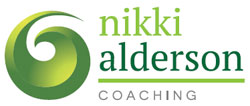Lawyers owning time
Many of us living and working through the 2020/2021 Covid 19 pandemic are also waking up to the fact that we are no longer working from home but rather living at work instead. Now, more than ever, we are finding the insidious creep of work into our personal lives and a blurring of any discernible boundaries between the two. A particular consequence I have observed in client sessions is that lawyers are having to review their time ownership strategies to promote optimum focus and more productive outcomes.
Owning Time whilst working from home/ living at work
Plan
It was Jim Rohn who said, “You run the day, or the day runs you” and I have seen it time and again that if we start our day with purpose, how much easier it is to find direction and stay on course. Even if last minute deadlines come along to blow us off track, with a plan to come back to we can more quickly capitalise on those small, unexpected pockets of time which come along and allow us to get on with another task on the To Do List.
Prioritise
Whilst a To Do List is useful, it becomes MOST effective when we have a clear handle on the order of priority of those tasks. It was Brian Tracy who came up with the “Eat that Frog” approach: thinking of the worst task to do in the day as having to eat a live frog and recommending that, rather than procrastinating, get up and do it first. Nothing will be worse to do in the day, which means it is firstly done without procrastination, and secondly, all other tasks fall into place more easily thereafter. Another method of identifying what is important/ urgent and in what order to tackle them is Eisenhower’s “Do- Diarise- Delegate- Delete” method – a sure fire way to shape the day by prioritising the most important stuff first.
Be Present
Even when we know what we need to do and in what order, we can still struggle with getting the job done. To ensure fully focus on the task in hand, my first strategy is to make sure to stay present in it – whether it is work or things in our personal lives. This may mean looking at ways to ensure optimum focus in the home – by choosing a room most conducive to getting the job done, working in short bursts or longer blocks of activity, whatever works well for you, and ensuring when you do stop, you take an adequate break, which could also involve getting out into the fresh air.
Unplug
Finally, avoid digital distractions: we all know how tempting it is when home schooling for example, to be checking work emails. But the end result is allowing ourselves to become frustrated, neither focusing on one thing nor the other. Whilst we are of course so dependent on technology to stay connected, particularly now we are working from home so much more, to allow the 24/7 digital world to constantly take away our attention can be seriously damaging to wellbeing. So how can the digital noise be quietened?
Notifications
Turn off email notifications which take concentration away and set boundaries to regain a sense of control around what times emails will be checked: say between certain times in the day. Use automatic out of office notifications to communicate those to clients/ colleagues/ clerks etc – during the day, not just whilst away on holiday – and where needs be, don’t be afraid to activate airplane mode for deep dive concentration to ensure no distraction at all.
Social Media
Whilst Social Media plays a significant role in our daily lives, including serving a very useful purpose in business (65% of my business for example comes through Linkedin and Twitter), equally it is important to ensure we have control over our own use. It may be necessary therefore to create some helpful boundaries around the use to which we put social media, and over what periods of time we allow ourselves access. It may be that strict times to access it are helpful, to avoid the death scroll or Twitter Rabbit hole I’m sure we are all familiar with, or considering the removal of social media Apps from mobile devices to avoid casual/ habitual use, and instead be more considered and purposeful by accessing from desktops the web version instead.
Boundaries
It comes down to identifying whereabouts is your line in the sand: “To what am I prepared to say yes?” Only trial and error will reveal your preferred strategy for creating and communicating boundaries around owning time.
So which will you implement today, for maximum effect?
Further Reading
https://www.counselmagazine.co.uk/articles/how-to-say-no-but-keep-the-opportunities-flowing
https://www.lawsociety.org.uk/topics/blogs/stop-saying-yes-start-saying-no
Essentialism by Geoff McKeown
Nikki Alderson Biography
Nikki Alderson, specialist coach, speaker and author, & former Criminal Barrister with 19 years’ experience:
- supports organisations, law firms & barristers’ Chambers to retain female talent; &
- empowers female lawyers to achieve career ambitions.
Nikki specialises in 3 areas:
- Women leadership transition & change;
- Enhanced career break returner support; &
- Workplace resilience, mental toughness, confidence & wellness.
She is the author of Amazon No.1 Bestseller Raising the Bar: empowering female lawyers through coaching, (https://amzn.to/3fodKQX) nominee for the Inspirational Women Awards, Champion of the Year Category & finalist in the 2019 International Coaching Awards, International Coach of the Year Category.

